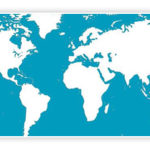When Should I Worry About International Trademarks?
If you are now selling, or plan to sell your product in another country, you should consider securing international trademarks in that country. As with most intellectual property rights, global trademark rights are largely limited to the country where such rights have been established. Put simply, establishing trademark rights in the US will not provide you with similar rights in Canada, Mexico, China, or anywhere else, and vice versa. Even worse, there is some chance that your business partners overseas will themselves secure rights in your brand, shifting the balance of power in negotiations or, even worse, holding your brands hostage. While securing foreign trademarks can be expensive, failing to secure such rights can create even more expensive headaches down the road.
How Can I Secure Global Trademark Rights?
We can assist you in obtaining global trademark rights in foreign countries in one of two ways: (1) by filing an international trademark application through the Madrid Protocol; or (2) by working with a foreign associate to facilitate direct filing in one or more foreign countries. Often times, the most effective way to secure such rights is through the Madrid Protocol, which is an international treaty that facilitates the filing of trademark applications in as many as 97 countries at once. For direct filing, while we have already established relationships with associates in many foreign countries, this option usually is more costly and cumbersome.
How Much Does It Cost?
For non-Madrid foreign filings (which are required in Mexico, Canada, and most of South and Central America) we will need to work with a foreign associate to facilitate most of these filings, and the fees will vary accordingly.
For an international application, the fee is calculated based on the number of countries you wish to file in, and can be calculated by using the Madrid Protocol’s fee calculator. As you will see, the base fee is currently set at 653 euros plus an additional fee for each country/region, not including our fees.
Note: You can elect to file applications in additional countries in the future based on your international registration.
After filing an international application, if any substantive issues are raised during the examination process in any country/region, or if a third party opposes your application, we will need to engage local counsel to interact directly with the country/region office, which will require the payment of additional fees. Also, once an application is approved, most countries/regions require the payment of registration fees to complete the registration process.


